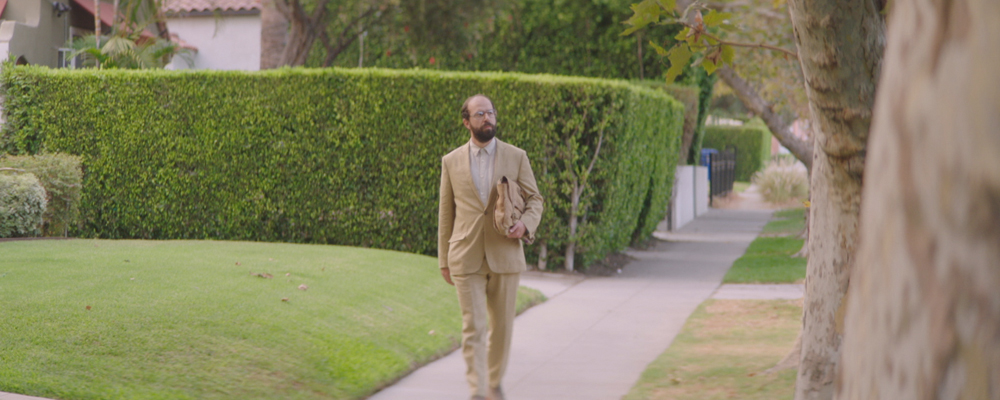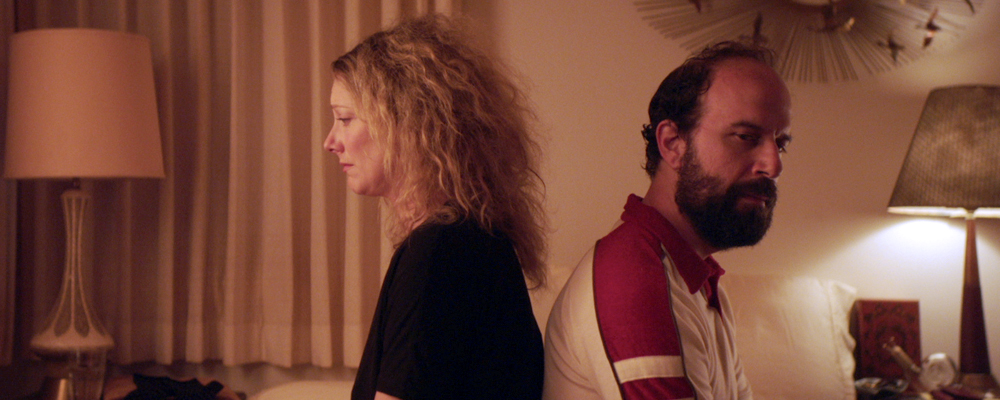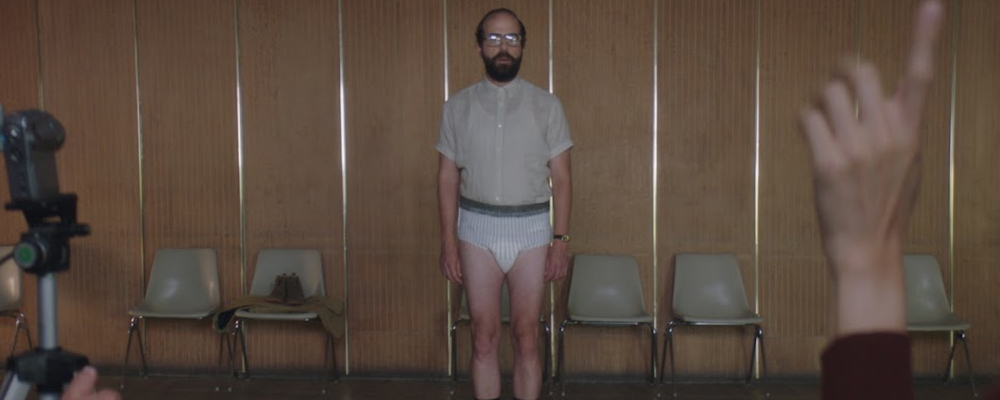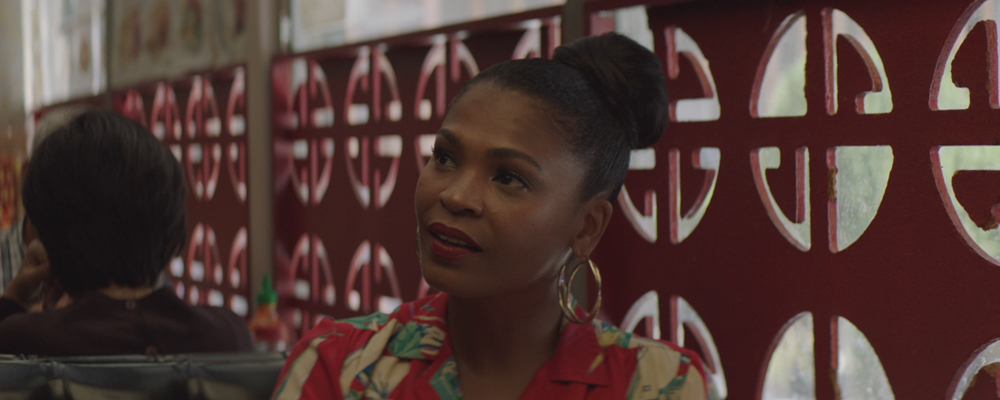The Creators of ‘Lemon’ Want Us to Laugh at the Darkness
Frederick Mintchell
The definition of a lemon is a person or thing that proves to be defective, imperfect or unsatisfactory. In the new film, “Lemon,” Isaac Lachmann (co-writer Brett Gelman) is a dud. Isaac Lachmann is 40. He is a man in free fall immobilized by mediocrity. His career is going nowhere. His girlfriend of ten years is leaving him. And his overbearing family doesn’t help matters. What did he do to deserve this? Things were supposed to work out differently for him. Lachmann had big dreams. Now he just watches as his life unravels. “Lemon” speaks to anyone who ever felt like their life was a lemon. The film co-stars Judy Greer, Michael Cera, Nia Long, Fred Melamed, Jon Daly, Rhea Perlman, David Paymer, Gillian Jacobs, Martin Starr and Marla Gibbs.
On her inspiration for the film, director and co-writer, Janicza Bravo writes: “One day I had the pleasure of waking up in my 30s. I noticed a dark cloud hanging over my head and a crushing sensation in my chest. Most of what I had imagined or seen for myself had yet to materialize. The only things that I had were a pit in my stomach and a ball in my throat.
With that as my new starting point, I plunged head first into an abyss. ‘Lemon’ is a pure manifestation of my greatest fear; arriving at a life or an end meant for someone else. You’re supposed to be the hero of your own life but what do you do if you aren’t born with the tools? I thought I deserved certain things. I felt like I’d been handed a fair amount of suffering that I had done a great job of getting through. I felt I’d put in plenty of days and hours into my craft and nothing worthwhile was presenting itself. ‘Lemon’ was birthed out of a deep frustration.”
Entertainment Voice recently sat down with Gelman and Bravo at The London in West Hollywood to talk about their new film over cookies.
Gelman: What a cookie!
Entertainment Voice: Have you ever had a bad cookie?
Bravo: I’ve had some bad cookies. There are bad cookies out there without question.
It doesn’t happen too often.
Bravo: That’s true.
Gelman: So thanks for taking the time to speak to us today.
Not a problem. I live a block away so I love coming to The London.
Bravo: So did you drive?
I walked the whole block.
Bravo [feigning shock]: Oh my God! Were you worried? Is it safe out there?
Gelman: Did you ever see “L.A. Story,” the Steve Martin movie, and the scene where they get out of the car and have to walk two blocks and he falls down, panting [laughing]. It’s so good.
Bravo: I need to watch that again [laughing]. I watched it when I first moved to L.A.
Gelman: I haven’t watched it since I moved to L.A. so I’m sure I’ll find it even funnier.
Bravo: Oh I’m sure.
Gelman: Steve Martin was great.
Bravo: And Sarah Jessica Parker.
Gelman: Wasn’t that her breakout role? Maybe along with “Girls Just Want to Have Fun.”
It definitely was one of her first movies.
Gelman: She’s so brilliant in “L.A. Story.”
Bravo: She’s always brilliant. Anyways, enough about SJP [laughing].
Gelman: We love you SJP. SJP was one of Janicza’s earliest supporters.
Bravo: That’s true. I was her second assistant when I first graduated from college.
Oh really?
Bravo: This year I got to direct an episode of her TV show, “Divorce.” Full circle.
How did you first meet SJP?
Bravo: One of my best friends from college was her first assistant. I was graduating from theater school. Usually theater majors do theater after school, but she was looking for a second assistant so I did that for two to three times a week for like a year. Throughout the years, SJ came to plays I directed and would send me sweet notes. She was always very supportive.
The first TV show I directed was “Atlanta” at the end of last year. The showrunner for that show was also working on ‘Divorce’ so I went in and interviewed. I got the job and someone texted me and asked if Sarah Jessica Parker could have my number since she only had my email. I was like, “of course she can. She can have the last four of my social.”
She called me right away and said, “oh my God! You’re directing television?” We hadn’t been in touch for many years and I was like, ‘yes. I’m up to direct your show and I think it’s up to you to decide’ and she said, “I’d love that.” It was kind of a beautiful moment.
Gelman: I ended up visiting Janicza on the set and SJP couldn’t stop talking about how good looking I was.
Bravo: Oh my gosh [laughing]! Shut up. You’re so silly.
So did that create tension [laughing]?
Bravo: I love it. I love it when other women think Brett is hot.
Gelman: We’re artists. I love it when other men think she’s hot as long as it’s respectful and they’re not objectifying her. Well, they can objectify her a little.
Bravo: Oh cool.
You two were a couple on the film and you’re a couple in life. How did you meet?
Bravo: We met on a commercial nine years ago.
Gelman: I used to be the face of the New York lottery. I was this character named Little Bit of Luck. They shrunk down my body. I had a shaved head and shaved face with Coke bottle glasses. I was basically a Jewish minstrel character there to trick poor people into gambling.
Bravo: I was the stylist on that commercial. It was directed by our friend Jon Watts. He’s now the director of “Spider-Man: Homecoming.” And here we are. Six years ago, we wrote the first draft of ‘Lemon.’ Then five years ago, the first shareable draft came to be and we sent it to Michael Cera who was the first person to say yes. From that moment to now took five years.
That seems to be the usual amount of time.
Bravo: It’s anywhere from one to ten years to make a film, so we’re falling right in the middle. If it had been anymore than five years, we’d be pulling our hair out.
So I read that ‘Lemon’ was borne out of frustration. Do you care to share what that was?
Gelman: Oh yes. The main character, Isaac Lachmann, is a figure of our deepest fears of being a failure in our lives, of not achieving what we want to achieve, and not having the tools to achieve it. When we started writing this, that’s very much where we were at. I’d say now we’re a little less there.
Bravo: I think we both work a little degree of anxiety and loneliness. Those feelings are often enmeshed in the project we’re working on. It’s an amalgamation of these incredibly negative feelings; this fear of arriving in a life meant for someone else and not for ourselves. There was this little voice happening for both of us that was saying, “maybe you’re not going to get the thing that you want.” The film is very much an exorcism or purge of those feelings.
Gelman: The movie’s also about feeling out of place and feeling alienated from those feelings and not knowing what to do with those feelings. This is an examination of the privilege of having those feelings and not be destroyed by them. Isaac is lucky to be on this plateau of mediocrity that he’s on. Most people in the world who behaved as he did would be destroyed. It was about examining that in myself. The hope is that this film makes people look at themselves and see that in them, where they feel less lonely and are able to laugh at that darkness.
It’s easy for other people to look at your life and say it’s so great when it’s really not.
Bravo: In people’s lives, there’s the Instagram filter and then there’s the reality. There’s the narrative that you present and you spin and then there’s the reality. I realized that the feeling that everyone was passing us by was based on this narrative that was being spun. The scale of the people that we thought were passing us by just wasn’t true. They were also feeling versions of inadequacy. You can really isolate yourself and drive yourself mad.
Gelman: There’s a real futility to placing yourself in some sort of hierarchy with the people who surround you, especially if they’re in the same business.
Bravo: Do you feel that it’s specific to this business or do people do that across the board?
Gelman: I feel that people do that across the board. People I know in other lines of work are constantly sizing themselves up.
Bravo: I wonder if it’s an American thing.
Gelman: It could be an American thing. I can’t speak to other countries of course, but I think it’s a specifically American thing. That’s the capitalist’s plight right? What do I have?
Bravo: And what don’t I have?
“Lemon“ opens in select theaters Aug. 18.





